Fleurs du Mal Magazine


Or see the index
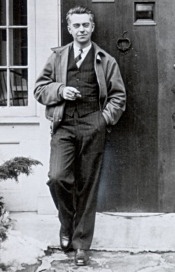
Hart Crane
(1889 – 1932)
At Melville’s Tomb
Often beneath the wave, wide from this ledge
The dice of drowned men’s bones he saw bequeath
An embassy. Their numbers as he watched,
Beat on the dusty shore and were obscured.
And wrecks passed without sound of bells,
The calyx of death’s bounty giving back
A scattered chapter, livid hieroglyph,
The portent wound in corridors of shells.
Then in the circuit calm of one vast coil,
Its lashings charmed and malice reconciled,
Frosted eyes there were that lifted altars;
And silent answers crept across the stars.
Compass, quadrant and sextant contrive
No farther tides . . . High in the azure steeps
Monody shall not wake the mariner.
This fabulous shadow only the sea keeps.
Hart Crane poetry
fleursdumal.nl magazine
More in: Archive C-D, Crane, Hart, Herman Melville
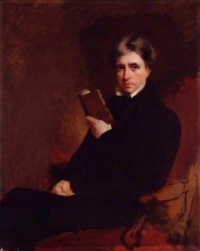
Leigh Hunt
(1784 – 1859)
Ariadne Waking
The moist and quiet morn was scarcely breaking,
When Ariadne in her bower was waking;
Her eyelids still were closing, and she heard
But indistinctly yet a little bird,
That in the leaves o’erhead, waiting the sun,
Seemed answering another distant one.
She waked, but stirred not, only just to please
Her pillow-nestling cheek; while the full seas,
The birds, the leaves, the lulling love o’ernight
The happy thought of the returning light,
The sweet, self-willed content, conspired to keep
Her senses lingering in the feel of sleep;
And with a little smile she seemed to say,
“I know my love is near me, and ’tis day.”
Leigh Hunt poetry
fleursdumal.nl magazine
More in: Archive G-H, Hunt, Leigh
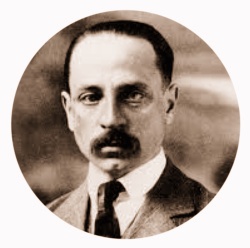
Rainer Maria Rilke
(1875 – 1926)
Der Gefangene
I
Meine Hand hat nur noch eine
Gebärde, mit der sie verscheucht;
auf die alten Steine
fällt es aus Felsen feucht.
Ich höre nur dieses Klopfen
und mein Herz hält Schritt
mit dem Gehen der Tropfen
und vergeht damit.
Tropften sie doch schneller,
käme doch wieder ein Tier.
Irgendwo war es heller -.
Aber was wissen wir.
II
Denk dir, das was jetzt Himmel ist und Wind,
Luft deinem Mund und deinem Auge Helle,
das würde Stein bis um die kleine Stelle
an der dein Herz und deine Hände sind.
Und was jetzt in dir morgen heißt und: dann
und: späterhin und nächstes Jahr und weiter –
das würde wund in dir und voller Eiter
und schwäre nur und bräche nicht mehr an.
Und das was war, das wäre irre und
raste in dir herum, den lieben Mund
der niemals lachte, schäumend von Gelächter.
Und das was Gott war, wäre nur dein Wächter
und stopfte boshaft in das letzte Loch
ein schmutziges Auge. Und du lebtest doch.
Rainer Maria Rilke Gedichte
fleursdumal.nl magazine
More in: Archive Q-R, Rilke, Rainer Maria
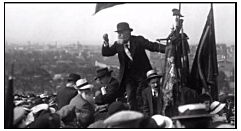
Jean Jaurès
(1859 – 1914)
Dans le bleu
L’effort de la lumière pour percer l’obstacle s’exprime par le
rayon jaune et lui donne un sens ; l’effort de l’ombre pour venir
à nous à travers la lumière, en l’adoucissant et en s’y égayant,
s’exprime par le rayon bleu.
Il serait singulier, en effet, que la lumière bleue se manifes-
tât toujours quand un fond obscur est vu à travers la clarté, et
que ce fait-là n’eût point de signification. Quand un vase d’eau
claire est posé sur un fond noir, l’eau paraît bleuâtre. Dans les
rayonnantes journées d’été, l’ombre portée sur un mur blanc,
vu à distance, semble bleue : les montagnes noires, à mesure
qu’on s’en éloigne par un beau temps, bleuissent ; et lorsque,
au couchant, un nuage sombre, voisin du soleil, au lieu de s’in-
terposer entre lui et nous, reçoit à sa surface les rayons glis-
sants, il apparaît d’un bleu admirable et il se confond avec le
bleu même du ciel ; si bien que, quand le soleil se cache et que
le prestige s’évanouit, l’œil est étonné de trouver un pesant
nuage là où il n’avait cru rencontrer que la pureté profonde de
l’air. Le ciel qui, la nuit, quand il n’est éclairé que par les
étoiles, est noir, vu à travers la lumière du soleil, apparaît bleu.
Ainsi toutes les grandes manifestations de la couleur bleue
sont liées aux mêmes conditions ; est-ce là un fait fortuit ? Le
bleu, comme pour bien marquer son rapport à l’obscur, confine
au noir et au gris par une multitude de degrés. Le soir, une
partie du ciel est déjà noire qu’une autre partie est encore
bleue ; et il semble au regard qui en fait le tour qu’il passe
seulement d’un bleu plus clair à un bleu plus sombre. À mesure
qu’on s’élève en ballon vers les hauteurs du ciel, le bleu est
plus sombre et plus voisin du noir.
Jean Jaurès poésie
fleursdumal.nl magazine
More in: Archive I-J, Jaurès, Jean

William Shakespeare
(1564-1616)
The quality of mercy
The quality of mercy is not strain’d,
It droppeth as the gentle rain from heaven
Upon the place beneath. It is twice blest:
It blesseth him that gives and him that takes.
‘T is mightiest in the mightiest: it becomes
The throned monarch better than his crown;
His sceptre shows the force of temporal power,
The attribute to awe and majesty,
Wherein doth sit the dread and fear of kings;
But mercy is above this sceptred sway,
It is enthroned in the hearts of kings,
It is an attribute to God himself;
And earthly power doth then show likest God’s,
When mercy seasons justice. Therefore, Jew,
Though justice be thy plea, consider this,
That in the course of justice none of us
Should see salvation: we do pray for mercy;
And that same prayer doth teach us all to render
The deeds of mercy.
William Shakespeare, “The Merchant of Venice”, Act 4 scene 1
Shakespeare 400 (1616 – 2016)
fleursdumal.nl magazine
More in: Archive S-T, Shakespeare, William
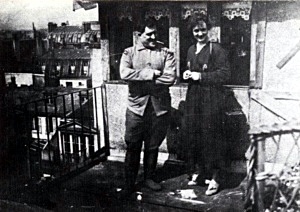
Guillaume Apollinaire
(1880 – 1918)
Mon Lou la nuit descend
Mon Lou la nuit descend tu es à moi je t’aime
Les cyprès ont noirci le ciel a fait de même
Les trompettes chantaient ta beauté mon bonheur
De t’aimer pour toujours ton cœur près de mon cœur
Je suis revenu doucement à la caserne
Les écuries sentaient bon la luzerne
Les croupes des chevaux évoquaient ta force et ta grâce
D’alezane dorée ô ma belle jument de race
La tour Magne tournait sur sa colline laurée
Et dansait lentement lentement s’obombrait
Tandis que des amants descendaient de la colline
La tour dansait lentement comme une sarrasine
Le vent souffle pourtant il ne fait pas du tout froid
Je te verrai dans deux jours et suis heureux comme un roi
Et j’aime de t’y aimer cette Nîmes la Romaine
Où les soldats français remplacent l’armée prétorienne
Beaucoup de vieux soldats qu’on n’a pu habiller
Ils vont comme des bœufs tanguent comme des mariniers
Je pense à tes cheveux qui sont mon or et ma gloire
Ils sont toute ma lumière dans la nuit noire
Et tes yeux sont les fenêtres d’où je veux regarder
La vie et ses bonheurs la mort qui vient aider
Les soldats las les femmes tristes et les enfants malades
Des soldats mangent près d’ici de l’ail dans la salade
L’un a une chemise quadrillée de bleu comme une carte
Je t’adore mon Lou et sans te voir je te regarde
Ça sent l’ail et le vin et aussi l’iodoforme
Je t’adore mon Lou embrasse-moi avant que je ne dorme
Le ciel est plein d’étoiles qui sont les soldats
Morts ils bivouaquent là-haut comme ils bivouaquaient là-bas
Et j’irai conducteur un jour lointain t’y conduire
Lou que de jours de bonheur avant que ce jour ne vienne luire
Aime-moi mon Lou je t’adore Bonsoir
Je t’adore je t’aime adieu mon Lou ma gloire
Guillaume Apollinaire Poèmes à Lou
fleursdumal.nl magazine
More in: #Archive Concrete & Visual Poetry, *War Poetry Archive, Apollinaire, Guillaume, Archive A-B
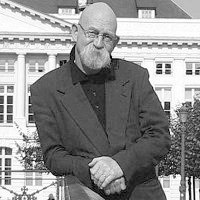
Over ooit
Wij bezitten een stukje van de wereld,
in een stad die wij graag zien. Al met al
gaat het er niet zo krampachtig aan toe
als dorpelingen vrezen. Er stroomt mooi
een rivier langs, niet echt door. Elke avond
lijkt er jong, ieder uur nieuw. Soms denk ik
er minutenlang aan niets, voel ik de rugzak
vol verleden amper. Alles gaat over ooit.
Bert Bevers
fleursdumal.nl magazine
More in: Archive A-B, Bevers, Bert

Rainer Maria Rilke
(1875 – 1926)
Die Kurtisane
Venedigs Sonne wird in meinem Haar
ein Gold bereiten: aller Alchemie
erlauchten Ausgang. Meine Brauen, die
den Brücken gleichen, siehst du sie
hinführen ob der lautlosen Gefahr
der Augen, die ein heimlicher Verkehr
an die Kanäle schließt, so daß das Meer
in ihnen steigt und fällt und wechselt. Wer
mich einmal sah, beneidet meinen Hund,
weil sich auf ihm oft in zerstreuter Pause
die Hand, die nie an keiner Glut verkohlt,
die unverwundbare, geschmückt, erholt -.
Und Knaben, Hoffnungen aus altem Hause,
gehen wie an Gift an meinem Mund zugrund.
Rainer Maria Rilke Gedichte
fleursdumal.nl magazine
More in: Archive Q-R, Rilke, Rainer Maria
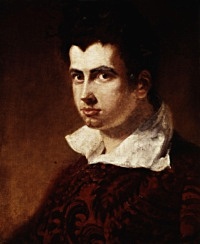
Leigh Hunt
(1784 – 1859)
Jenny kiss’d Me
Jenny kiss’d me when we met,
Jumping from the chair she sat in;
Time, you thief, who love to get
Sweets into your list, put that in!
Say I’m weary, say I’m sad,
Say that health and wealth have miss’d me,
Say I’m growing old, but add,
Jenny kiss’d me.
Leigh Hunt poetry
fleursdumal.nl magazine
More in: Archive G-H, Hunt, Leigh
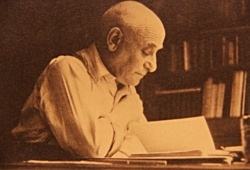
Max Jacob
(1876 – 1944)
Romance
Je garde dans la solitude comme un pressentiment de toi.
Tu viens ! et le ciel se déploie, la forêt, l’océan reculent.
Tous deux le soleil nous désigne par-dessus la ville et les toits les fenêtres renvoient ses lignes les fleurs éclatent comme des voix.
Lorsque ton jardin nous reçoit, ta maison prend un air étrange: comme un reflet, la véranda nous accueille, sourit et change.
Les arbres ont de grands coups d’ailes derrière et devant les buissons.
La vague, au loin, parallèle, se met à briller par frissons.
Je garde dans la solitude comme un pressentiment de toi.
Tu viens ! et le ciel se déploie, la forêt, l’océan reculent.
Max Jacob poetry
fleursdumal.nl magazine
More in: Archive I-J, Jacob, Max

William Shakespeare
(1564-1616)
To-morrow
To-morrow, and to-morrow, and to-morrow,
Creeps in this petty pace from day to day
To the last syllable of recorded time,
And all our yesterdays have lighted fools
The way to dusty death. Out, out, brief candle!
Life’s but a walking shadow, a poor player
That struts and frets his hour upon the stage
And then is heard no more: it is a tale
Told by an idiot, full of sound and fury,
Signifying nothing.
William Shakespeare, “Macbeth”, Act 5 scene 5
Shakespeare 400 (1616 – 2016)
fleursdumal.nl magazine
More in: Archive S-T, Shakespeare, William
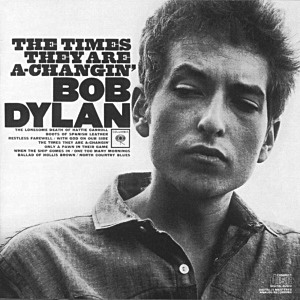
The Nobel Prize in Literature 2016
Bob Dylan
The Nobel Prize in Literature for 2016 is awarded to Bob Dylan: “for having created new poetic expressions within the great American song tradition”.
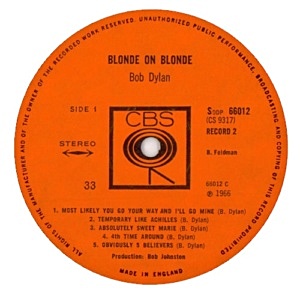
Bob Dylan Albums
Bob Dylan (1962)
The Freewheelin’ Bob Dylan (1963)
The Times They Are A-Changin’ (1964)
Another Side Of Bob Dylan (1964)
Bringing It All Back Home (1965)
Highway 61 Revisited (1965)
Blonde On Blonde (1966)
Bob Dylan’s Greatest Hits (1967)
John Wesley Harding (1968)
Nashville Skyline (1969)
Self Portrait (1970)
New Morning (1970)
Bob Dylan’s Greatest Hits Vol. 2 (1971)
Pat Garrett & Billy The Kid (1973)
Dylan (1973)
Planet Waves (1974)
Before The Flood (1974)
Blood On The Tracks (1975)
The Basement Tapes (1975)
Desire (1976)
Hard Rain (1976)
Street Legal (1978)
Bob Dylan At Budokan (1978)
Slow Train Coming (1979)
Saved (1980)
Shot Of Love (1981)
Infidels (1983)
Real Live (1984)
Empire Burlesque (1985)
Biograph (1985)
Knocked Out Loaded (1986)
Down In The Groove (1988)
Dylan & The Dead (1989)
Oh Mercy (1989)
Under The Red Sky (1990)
The Bootleg Series Vols. 1-3: Rare And Unreleased 1961-1991 (1991)
Good As I Been to You (1992)
World Gone Wrong (1993)
Bob Dylan’s Greatest Hits Vol. 3 (1994)
MTV Unplugged (1995)
The Best Of Bob Dylan (1997)
The Songs Of Jimmie Rodgers: A Tribute (1997)
Time Out Of Mind (1997)
The Bootleg Series, Vol. 4: Bob Dylan Live 1966: The ’Royal Albert Hall’ Concert (1998)
The Essential Bob Dylan (2000)
”Love And Theft” (2001)
The Bootleg Series, Vol. 5: Live 1975: The Rolling Thunder Revue (2002)
Masked And Anonymous: The Soundtrack (2003)
Gotta Serve Somebody: The Gospel Songs Of Bob Dylan (2003)
The Bootleg Series, Vol. 6: Live 1964: Concert At Philharmonic Hall (2004)
The Bootleg Series, Vol. 7: No Direction Home: The Soundtrack (2005)
Live At The Gaslight 1962 (2005)
Live At Carnegie Hall 1963 (2005)
Modern Times (2006)
The Traveling Wilburys Collection (2007)
The Bootleg Series, Vol. 8: Tell Tale Signs: Rare And Unreleased, 1989-2006 (2008)
Together Through Life (2009)
Christmas In The Heart (2009)
The Original Mono Recordings (2010)
The Bootleg Series, Vol. 9: The Witmark Demos: 1962-1964 (2010)
Good Rockin’ Tonight: The Legacy Of Sun (2011)
Timeless (2011)
Tempest (2012)
The Lost Notebooks Of Hank Williams (2011)
The Bootleg Series, Vol. 10: Another Self Portrait (2013)
The Bootleg Series, Vol. 11: The Basement Tapes Complete (2014)
The Bootleg Series, Vol. 12: The Cutting Edge 1965-1966 (2015)
Shadows In The Night (2015)
Fallen Angels (2016)
fleursdumal.nl magazine
13 oct. 2016
More in: Archive C-D, Art & Literature News, Awards & Prizes, Bob Dylan, Dylan, Bob, Literary Events
Thank you for reading Fleurs du Mal - magazine for art & literature